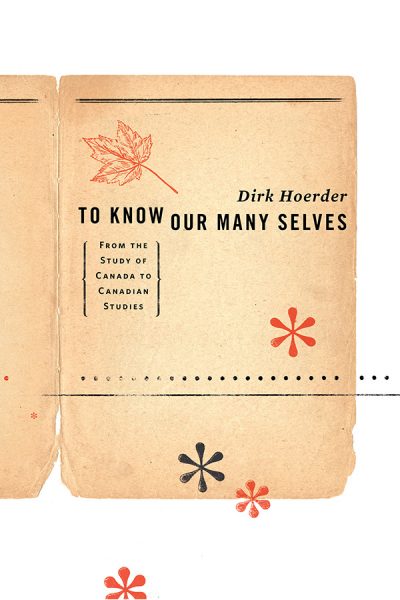To Know Our Many Selves profiles the history of Canadian Studies, which began as early as the 1840s with the Study of Canada. Professor Dirk Hoerder discusses this comprehensive examination of culture by highlighting its unique interdisciplinary approach, which included both sociological and political angles. Years later, as the study of other ethnicities was added to the cultural story of Canada, a solid foundation was formed for the nation’s master narrative. Against this background, To Know Our Many Selves focuses on why Canadian Studies may be used as a sound model for the study of other societies in a frame of Transcultural Societal Studies.
About the Author
Born in Germany, Dirk Hoerder was a professor in the department of history at the University of Bremen. After receiving a master of arts in history and political sciences from the University of Minnesota, he completed a doctorate in Modern and Medieval History and English Language and Literature from Free University of Berlin. He was president of the Association for Canadian Studies until 2005. He now teaches at Arizona State University.
Table of Contents
- Bibliographic Notes
- Preface
- Acknowledgements
- Introduction
- 1. Traditions and Practices: From Colonial and Area to Cultural or Societal Studies
- Part I. Framing Research on Canada: Burdens and Achievements of the Past
- 2. The Atlantic World: Creating Societies in Imperial Hinterland
- 3. Canada’s Peoples: Inclusions & Exclusions
- 4. Self-Constructions: From Regional Consciousnesses to National Billboards
- Part II. From Privileged Discourses to Research on Social Spaces
- 5. Privileged Discourses up to 1920: Scholarship in the Making
- 6. Substantial Research: The Social Spaces of the Geological Survey of Canada
- 7. Learning and Society: Social Responsibility, Educational Institutions, Elite Formation
- Part III. The Study of Canada: The Social Sciences, the Arts, New Media, 1920s-1950s
- 8. Data-Based Studies of Society: Political Economy, History, Sociology
- 9. Discourse-Based Reflections about Society: Where Were the Humanities?
- Part IV. The Third Phase: Multiple Discourses about Interlinked Societies
- 10. Decolonization: The Changes of the 1960s
- 11. Visions and Borderlines: Canadian Studies since the 1960s
- 12. Views from the Outside: The Surge of International Canadian Studies
- 13. Agency in a Multicultural Society: Interdisciplinary Research Achievements
- Part V. Perspectives
- 14. From Interest-Driven National Discourse to Transcultural Societal Studies
- Interviews with the Author / Index
This work is licensed under a Creative Commons License (CC BY-NC-ND 2.5 CA). It may be reproduced for non-commercial purposes, provided that the original author is credited.
